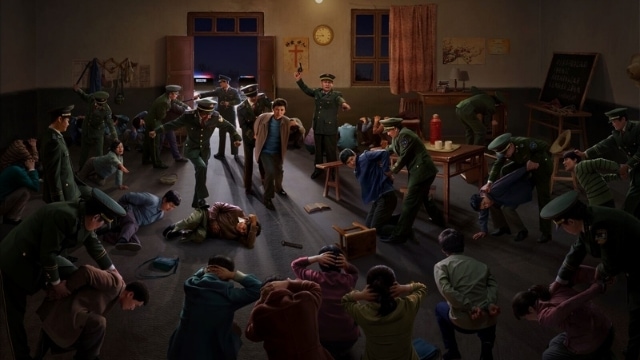In a landmark decision concerning a Church of Almighty God asylum seeker in Switzerland, the U.N. Committee Against Torture ruled that the risk exists for all Christians.
by Massimo Introvigne


The worst decision ever for China rendered by a body of the United Nations came in a case of a refugee of The Church of Almighty God (CAG). The Committee against Torture (CAT), the U.N. body that monitors the implementation of the Convention against Torture and Other Cruel, Inhuman or Degrading Treatment or Punishment by its State parties, rendered on July 27, 2021 a decision on a case of a female CAG member, which has a long judicial history.
The decision was a significant blow to China as it ruled that Christians in general, not only the members of new religious movements banned as xie jiao such as the CAG, are subject to an “increasing incidence of persecution,” so that deporting the applicant to China “would put her at risk of torture or other cruel, inhuman or degrading treatment or punishment.”
Since electronic publication of the CAT decisions only includes cases up to December 2019, we offer to our readers the possibility to download the copy of the decision, whose general distribution was allowed on August 31, 2021.
The early story of the case is discussed as part of a paper I published a few months ago with my colleagues James T. Richardson and Rosita Šorytė, on hundreds of CAG refugee cases decided by courts all over the world.
On February 3, 2016, the Swiss State Secretariat for Immigration (SEM) rejected the CAG member’s asylum application.The applicant’s story of her conversion to the CAG did not persuade the Secretariat as genuine. That she was denounced to the Chinese police by a relative of a co-religionist and repeatedly avoided arrest at the last minute was found as even more unbelievable, also in light of the fact that she did not experience problems in obtaining a passport.
On April 30, 2016, the Swiss Federal Administrative Court found a prima facie case that the applicant’s appeal was doomed to fail and, also noting that she had not paid the advance procedural fees of 900 Swiss francs, ruled against her.
On November 9, 2016, the European Court of Human Rights (ECHR) declared her application to have the case reviewed inadmissible, since the CAG member (who had tried to self-represent herself) had relied on the wrong provisions of international law, citing statutes that did not apply to her case.
Assisted by the Centre Suisse pour la Défense des Droits des Migrants, the CAG sister then submitted a complaint to the CAT on December 1, 2016. She offered a detailed explanation of how the husband of a co-religionist, who was hostile to the CAG, had led the police to her, knowing her only by her religious name, and she had adventurously managed to escape. Since she presumed the police knew her only by her alias or religious name, she said, she had been able (with some help by third parties) to obtain a passport and escape to Switzerland.


She submitted new evidence to the CAT from co-religionists who were aware of her story in China, and also proved that she had participated in a human rights event in Geneva criticizing the Chinese regime, which generated a video available in YouTube and presumably known to the Chinese authorities.
She also submitted two affidavits by the undersigned, Massimo Introvigne, and James T. Richardson, confirming that members of groups labeled as xie jiao are arrested under article 300 of the Chinese Criminal Code, and are frequently tortured, plus another affidavit by Italian scholar PierLuigi Zoccatelli explaining how members of persecuted groups often manage to obtain passports in China. She also referred to several official documents by both NGOs and governments of democratic countries stating that Christians in general (except the members of the government-controlled Three Self Church) are often incarcerated and tortured in China.
Parenthetically, I would note that on May 17, 2018, the CAT had rejected a case where an asylum seeker in Denmark has claimed that he was at risk of torture in China as he had been a member of the CAG there. However, the Danish case was different because it concerned an ex-member of the CAG, who had stated that he had formally renounced his affiliation with CAG at the time of the decision.
The Swiss government resisted strenuously the application. It reiterated that its denial of asylum was based on contradictions in the applicant’s story, and that the fact that she was a CAG member had not been proved. It insisted that, if she really had been identified as a member of a banned group, she could not have obtained a passport. It advanced the procedural argument that the fact that the ECHR had declared her complaint inadmissible prevented the CAT from examining her case.
Finally, it expressed doubts that the Chinese authorities were aware of the Geneva human rights event that the applicant had attended, and stated that at any rate this argument should have been used by the CAG member to file a new request for asylum rather than submitted to the CAT.
Switzerland premised all this with the incredible statement that “the Swiss state maintains that there is no consistent pattern of gross, flagrant or mass violations of human rights in China.” When I read this statement, quoted in number 6.2 of the decision, I had to pause and read it twice. It was impossible not to be reminded of a scandal exposed in 2020 by Swiss media, which revealed that experts from China’s Ministry of Public Authority had traveled to Switzerland pursuant to a confidential agreement, and advised immigration authorities about Chinese present on Swiss soil.
Not only is the statement that there are no large violations of human rights in China inherently ridiculous, it contradicts a document read by Germany on October 6, 2020, at the United Nations in New York and denouncing precisely massive violations of human rights in China. It was signed by 39 countries—including Switzerland. Paradoxically, the document also stated that all countries should “respect the principle of non-refoulement,” which means that refugees from China should not be sent back to a country where they will be detained and persecuted.
The CAT first dismissed the procedural argument based on the ECHR’s declaration of inadmissibility, noting that the ECHR had not examined the application in its merit, but had declared it inadmissible for technical and procedural reasons. The CAT accepted Switzerland’s argument that the complainant’s participation to a public event critical of China in Geneva should have been first submitted to the Swiss authorities as part of a new asylum application, and did not rely on this incident for its decision, but it found there were at any rate other reasons to find in favor of the CAG member.
The CAT also sided with Switzerland when the latter argued that documents proving that the applicant was a CAG member had been filed in the Swiss procedure when they were no longer admissible, so that, here again, they might have been introduced in a fresh asylum application rather than submitted to the CAT. While noting the argument that the CAG is severely persecuted in China, the CAT agreed not to base its decision on CAG-related issues but on the broader question whether Christians (except those belonging to government-controlled communities) are persecuted and at risk of torture in China.
The CAT stated first that, contrary to Switzerland’s statement, there is a sustained pattern of violation of human rights in China. This, however, the CAT noted, would not be enough to find in favor of the complainant. It should be proved that the complainant is personally at risk of being tortured in China.
The CAT examined Switzerland’s objections that the complainant’s story was contradictory and that if she was really persecuted she should not have received a passport. The CAT found the story as told by the CAG sister coherent and believable enough. On the passport issue, which is frequently used to deny asylum to refugees from China, the CAT mentioned “one of the submitted professorial statements [Zoccatelli’s], according to which procuring a passport is possible if the person concerned has never been checked or had provided an alias during a check and profited from a delay in the registration of their fingerprints.
The statement also points out that there is a high level of corruption among Chinese officials that facilitates the procurement of passports, and that airport officials rarely check names and never check fingerprints. The Committee notes that the complainant states having availed herself of an alias and that she received help from third parties in procuring the documents, which is consistent with the abovementioned information.”
Finally, the CAT concluded that there is sufficient evidence of the “increasing incidence of persecution of Christians in China,” that torture is used, and that “it is reasonable to assume that the complainant’s removal to China would put her at risk of torture or other cruel, inhuman or degrading treatment or punishment.” The CAT requested Switzerland “to refrain from deporting the complainant while her application for asylum is being reviewed.”
Hopefully, this landmark decision will conclusively establish that members of “illegal” Christian groups, including (but not limited to) Christian new religious movements such as the CAG, are at risk of torture in China, and that immigration authorities and courts of law in democratic countries will take it into account.








